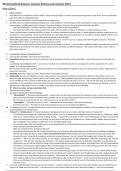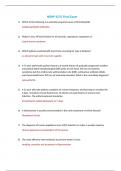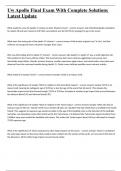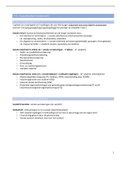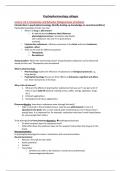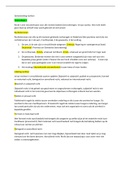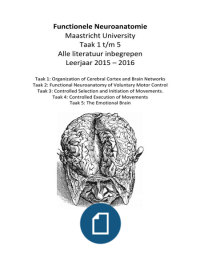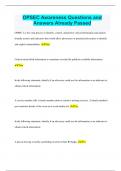Summary
Summary Business & Consumer Ethics- 3BA Business Economics
- Course
- Institution
- Book
This is a summary of the course Business & Consumer Ethics in the second semester of the 3rd bachelor year of Business Economics at VUB. The summary goes up until Chapter 8. The summary is based on my notes during the lectures and the book. Professor Karl Verstrynge gives this course.
[Show more]
